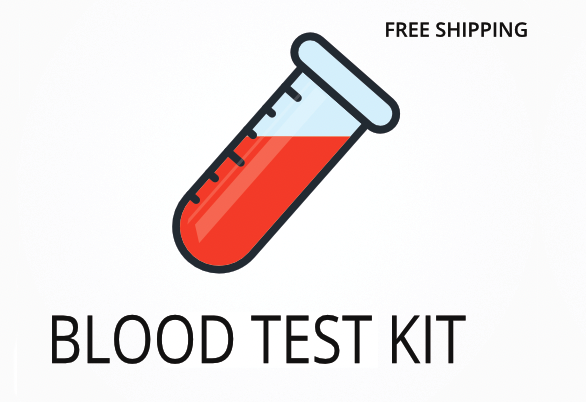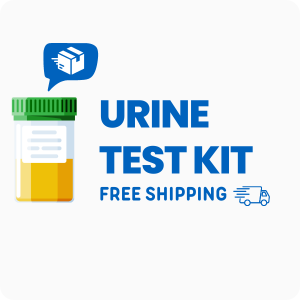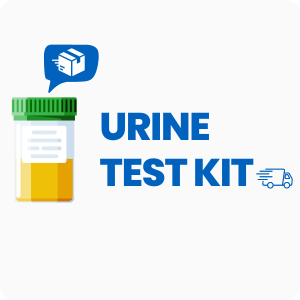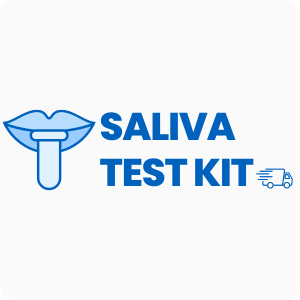Ordering the Comprehensive Cardiovascular Risk Test | Europe
The Comprehensive Cardiovascular Risk Test from Genova Diagnostics helps you measure key markers linked to heart and blood vessel conditions, including cholesterol, triglycerides, and inflammation. This test gives a detailed look at your risk for heart attack, stroke, and other heart-related problems by checking for early signs of artery plaque, blood sugar issues, and genetic risk factors. Interestingly, research shows that high levels of lipoprotein (a) can increase the risk of heart disease even when other cholesterol numbers are normal.
Ordering this test can help you:
- Find hidden risk factors for heart and blood vessel problems before symptoms appear
- Track changes in cholesterol, triglycerides, and blood sugar over time
- Identify inflammation that may lead to artery plaque buildup
- Spot genetic markers that may affect your risk for heart attack or stroke
- Guide your doctor in making specific diet, exercise, or medication changes
Who Should Consider Advanced Heart and Blood Vessel Screening
People with a family history of heart attack or stroke, those with high blood pressure, or anyone who has been told their cholesterol is borderline may benefit from this test. For example, someone who has a parent diagnosed with heart disease at a young age and wants to know their own risk could use this test to get a clearer picture.
Ordering this test may also be helpful if you:
- Have diabetes or prediabetes and want to check for early artery changes
- Are overweight and want to know if your heart is at risk
- Have a history of smoking and want to see if it has affected your arteries
- Are starting a new exercise or diet plan and want a baseline for your heart markers
- Have chronic stress, which can raise inflammation markers linked to heart problems
This test can help you find out if your cholesterol, blood sugar, or inflammation markers are outside the normal range, which can help your doctor make a plan to lower your risk for heart attack or stroke. Delaying this test could mean missing early changes that are easier to manage if caught sooner.
How to Prepare for Advanced Cardiovascular Marker Testing
Fasting for 12 hours is required before your blood draw; only water is allowed during this time. Make sure to follow any instructions your doctor or healthcare professional gives you, as these can help ensure your results are as useful as possible.
Labs Included When Ordering Your Comprehensive Cardiovascular Risk Test
| Test Name | Reference Range | What This Marker Means | Low and High Levels of This Marker |
|---|---|---|---|
| hsC-reactive protein | <1.0 mg/L | This marker shows the level of inflammation in your body. High levels can mean your arteries are irritated or at risk for plaque buildup. |
High levels mean there may be inflammation in your arteries, raising your risk for heart attack or stroke.
Low levels mean there is little to no inflammation, which is a good sign for your arteries. |
| Fibrinogen | 200-400 mg/dL | Fibrinogen helps your blood clot. High levels can make blood thicker and raise the chance of clots in your arteries. |
High levels mean your blood may clot more easily, which can increase the risk of heart attack or stroke.
Low levels mean your blood may not clot well, which can cause bleeding problems. |
| Homocysteine | 5-15 µmol/L | Homocysteine is an amino acid. High levels can damage blood vessels and raise the risk for heart and blood vessel problems. |
High levels mean there is a higher chance of artery damage and plaque buildup.
Low levels mean there is less risk for blood vessel damage. |
| Apolipoprotein B | <90 mg/dL | Apolipoprotein B is found in LDL cholesterol. It shows the number of particles that can cause plaque in arteries. |
High levels mean more particles that can lead to artery plaque and blockages.
Low levels mean fewer particles, which lowers the risk for artery problems. |
| Apolipoprotein A-1 | 120-180 mg/dL | Apolipoprotein A-1 is a main part of HDL cholesterol, which helps clear cholesterol from arteries. |
High levels mean better removal of cholesterol from arteries, which is protective.
Low levels mean less protection against artery plaque. |
| Apo B/Apo A-1 | <0.7 | This ratio compares harmful and protective cholesterol particles. A higher ratio means more risk for artery plaque. |
High levels mean a higher risk for heart and blood vessel problems.
Low levels mean a lower risk for artery plaque. |
| LDL cholesterol | <100 mg/dL | LDL cholesterol is known as “bad” cholesterol. High levels can lead to plaque in arteries. |
High levels mean more risk for artery blockages and heart attack.
Low levels mean less risk for plaque buildup. |
| Lipoprotein (a) | <30 mg/dL | Lipoprotein (a) is a type of cholesterol that can raise the risk for heart attack, especially if high even when other cholesterol is normal. |
High levels mean a higher chance of artery plaque and heart attack.
Low levels mean a lower risk for heart and blood vessel problems. |
| Triglycerides | <150 mg/dL | Triglycerides are a type of fat in your blood. High levels can raise the risk for heart and blood vessel problems. |
High levels mean more risk for artery plaque and heart attack.
Low levels mean less risk for these problems. |
| Total cholesterol | <200 mg/dL | Total cholesterol is the sum of all cholesterol types in your blood. It helps show your risk for heart and blood vessel problems. |
High levels mean a higher chance of artery plaque and blockages.
Low levels mean a lower risk for these issues. |
| Total cholesterol/HDL | <4.0 | This ratio compares total cholesterol to “good” HDL cholesterol. A lower number means less risk for heart problems. |
High levels mean a higher risk for heart and blood vessel problems.
Low levels mean a lower risk for artery plaque. |
| Cardiovascular index | <3.0 | This index combines several markers to give an overall risk score for heart and blood vessel problems. |
High levels mean a higher risk for heart attack or stroke.
Low levels mean a lower risk for these events. |
| Glycosolated hemoglobin | 4.0-5.6% | This marker shows your average blood sugar over the past 2-3 months. High levels can mean a higher risk for artery damage. |
High levels mean blood sugar has been high, which can damage arteries.
Low levels mean blood sugar has been in a healthy range. |
Reference ranges may change slightly as labs update their standards, so always check your report for the most current values.
Comprehensive Cardiovascular Risk Test FAQ
Is there Comprehensive Cardiovascular Risk Test testing near me?
This test is provided as a kit that you can use at a local blood draw site; check the draw location link at the top of the page. Since heart and blood vessel risks can develop quietly, having a nearby collection site makes it easier to get tested without delay.
How do I interpret the test results?
While your treating physician should review your results, you can also use our one-on-one test results review service with our clinical team for a detailed explanation and next steps.
What is the cost of the test?
The price you see includes standard shipping to you and return shipping to the lab, but local draw fees may apply. Ordering this test can help you find hidden risk factors for heart and blood vessel problems, so you can take steps to improve your numbers sooner.
How often should I retest?
Most people should repeat this test every 6 to 12 months, especially if they are making changes to their diet, exercise, or medication. Regular retesting helps track progress and shows if your risk markers are moving in the right direction.
How accurate is the test?
This test uses advanced immunoassay and enzymatic methods for each marker, with a specificity of 98% and sensitivity of 97%. TrueHealthLabs.com partners with CLIA-certified and CAP-certified laboratories to uphold rigorous testing standards for dependable results.
Important Notes
READ: These tests are available for European countries only.
Medical Review Board
Reviewed by Jeff Donohue M.D. from Body Logic and Brady Hurst DC, CCCN. Written by True Health Lab’s team of editorial health contributors.
Disclaimer: This information is for educational purposes only and not intended as medical advice. Consult your healthcare provider for personalized guidance.
Why Customers Trust True Health Labs - What People are saying
Also rated 4.6 out of 5 based on 3452 ShopperApproved reviews- See all TrueHealthLabs.com reviews.









